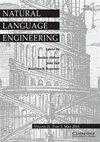Quantifying the impact of context on the quality of manual hate speech annotation
IF 1.9
3区 计算机科学
Q3 COMPUTER SCIENCE, ARTIFICIAL INTELLIGENCE
引用次数: 3
Abstract
The quality of annotations in manually annotated hate speech datasets is crucial for automatic hate speech detection. This contribution focuses on the positive effects of manually annotating online comments for hate speech within the context in which the comments occur. We quantify the impact of context availability by meticulously designing an experiment: Two annotation rounds are performed, one in-context and one out-of-context, on the same English YouTube data (more than 10,000 comments), by using the same annotation schema and platform, the same highly trained annotators, and quantifying annotation quality through inter-annotator agreement. Our results show that the presence of context has a significant positive impact on the quality of the manual annotations. This positive impact is more noticeable among replies than among comments, although the former is harder to consistently annotate overall. Previous research reporting that out-of-context annotations favour assigning non-hate-speech labels is also corroborated, showing further that this tendency is especially present among comments inciting violence, a highly relevant category for hate speech research and society overall. We believe that this work will improve future annotation campaigns even beyond hate speech and motivate further research on the highly relevant questions of data annotation methodology in natural language processing, especially in the light of the current expansion of its scope of application.量化上下文对手动仇恨言论注释质量的影响
手动注释的仇恨言论数据集中的注释质量对于自动仇恨言论检测至关重要。这篇文章的重点是在评论发生的背景下,为仇恨言论手动注释在线评论的积极影响。我们通过精心设计一个实验来量化上下文可用性的影响:在相同的英语YouTube数据(超过10000条评论)上进行两轮注释,一轮是上下文中的,另一轮是断章取义的,使用相同的注释模式和平台,使用同样训练有素的注释者,并通过注释者之间的一致性来量化注释质量。我们的结果表明,上下文的存在对手册注释的质量有显著的积极影响。这种积极影响在回复中比在评论中更为明显,尽管前者更难在整体上得到一致的注释。先前的研究报告称,断章取义的注释有利于指定非仇恨言论标签,这也得到了证实,进一步表明,这种趋势尤其存在于煽动暴力的评论中,这是仇恨言论研究和整个社会的一个高度相关类别。我们相信,这项工作将改善未来的注释运动,甚至超越仇恨言论,并推动对自然语言处理中数据注释方法论高度相关问题的进一步研究,特别是考虑到目前其应用范围的扩大。
本文章由计算机程序翻译,如有差异,请以英文原文为准。
求助全文
约1分钟内获得全文
求助全文
来源期刊

Natural Language Engineering
COMPUTER SCIENCE, ARTIFICIAL INTELLIGENCE-
CiteScore
5.90
自引率
12.00%
发文量
60
审稿时长
>12 weeks
期刊介绍:
Natural Language Engineering meets the needs of professionals and researchers working in all areas of computerised language processing, whether from the perspective of theoretical or descriptive linguistics, lexicology, computer science or engineering. Its aim is to bridge the gap between traditional computational linguistics research and the implementation of practical applications with potential real-world use. As well as publishing research articles on a broad range of topics - from text analysis, machine translation, information retrieval and speech analysis and generation to integrated systems and multi modal interfaces - it also publishes special issues on specific areas and technologies within these topics, an industry watch column and book reviews.
 求助内容:
求助内容: 应助结果提醒方式:
应助结果提醒方式:


